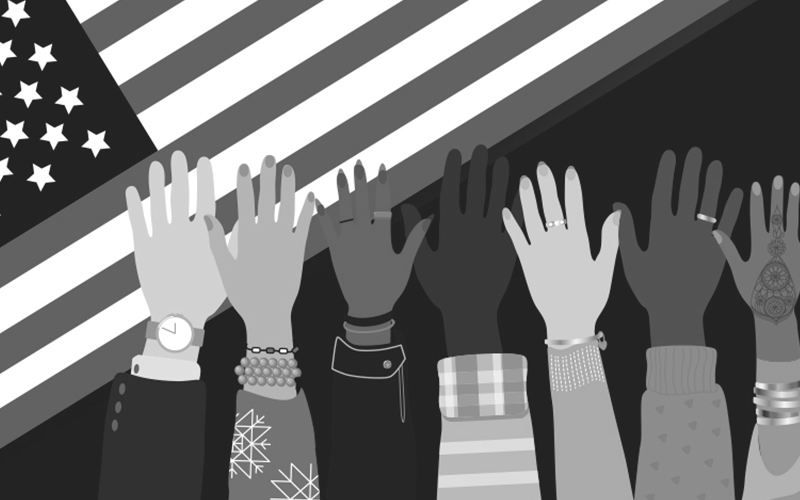Foundation News
Newrizons FCU Uses CDFI Grant to Support Immigrant Community
Posted by Ben Shuey on July 20, 2021

Newrizons Federal Credit Union has always known its niche. Located in Hoquiam, Washington, the credit union serves seasonal workers in industries such as fishing, timber, mill work, and hospitality. The area has a large immigrant population, and many residents are low-income, unemployed, or underemployed at some point during the year. It’s a community Newrizons has been proud to serve for the past five decades.
The credit union is a Community Development Financial Institution (CDFI), a designation given to financial institutions that provide financial services in low-income communities. Unlike some financial services providers that rely on FICO scores and savings accounts to make loans or offer other services, CDFIs help community members gain financial knowledge, build credit, and set goals.
According to Newrizons CEO, Ynette Gibbs, as a CDFI, the credit union is focused on developing long-term relationships with members who have no other place to turn for financial services. Gibbs explained that a large responsibility for Newrizons is offering members financial, tax, and credit counseling.
“There is a fear level among these people because they come from countries where banks aren’t honest,” Gibbs said.
Newrizons has a history of working with immigrants. During her tenure, Gibbs has made it a point to employ DACA students, and she recently hired a former DACA employee (now permanent resident) as Community Relations Manager. In other words, Newrizons knows its community inside and out and is committed to helping members thrive however possible.
It was with those members in mind that the credit union applied for a grant through the U.S. Treasury Department’s Rapid Response Program. In June, Newrizons was among 863 CDFIs around the country to receive $1.25 billion in COVID-19 relief funds. The credit union was awarded $1.5 million, the largest grant Newrizons has ever received.
“We were shocked and elated,” said Gibbs.
But they had a plan for the money. Part of the grant will fund the credit union’s nascent Path to Citizenship Program, an effort to help guide community members through the years-long U.S. citizenship process.
“We’re trying to help people who are trying to do the right thing,” she said. “And one of those things is becoming a citizen.”
The Path to Citizenship Program is a long-term endeavor, and Gibbs’ team has developed a detailed execution plan.
“All the money we receive will be put directly back into the community — we work with people that no one else will touch, but with strings attached,” Gibbs said.
The first step for members interested in the program is to open a Path to Citizenship Special Savings account and commit to depositing a minimum of $15 each month. They may only withdraw funds to cover items related to citizenship costs, such as training or class fees, mileage to and from appointments related to immigration at the IRS reimbursed level, immigration attorney appointments, and any other related expenses.
The second step of the program is to open a Path to Citizenship Line of Credit. The maximum loan amount is $10,000 with a fixed interest rate of 10%. For every monthly payment the member makes, the credit union will use grant money to pay an additional principal payment equal to the interest that was paid each month, meaning the end result is a zero-interest loan. It’s a reward for making timely payments, and also teaches the concepts of principal and interest.
“We know the average timeframe is 10 years to becoming a citizen,” said Gibbs. “Savings alone will not get them to citizenship. So, we’ve tried to put in as many rewards as possible because 10 years is a long time, and they need as many rewards as they can get to keep them motivated.”
One issue that initially concerned Gibbs was how to address the legal aspect of citizenship, but now, she has that covered.
“We’re so excited that we have two immigration attorneys who want to partner with us because we want them to explain to the participants how difficult this will be. We also want to know right away if the member qualifies or if they don’t qualify.”
Gibbs explained it’s critical to have the right people in place who know the ins and outs of immigration law. Newrizons plans to have informational and training sessions that members can attend so they’ll understand the process from beginning to end.
“We won’t be the legal experts, but we’ll be the financial backers. We don’t want money to be a reason they don’t pursue citizenship,” she said.
While the Path to Citizenship Program hasn’t been formally announced yet, there are currently 13 members interested in participating. Newrizons plans to share more information at the beginning of September and hopes to start the program this fall.
Posted in Community Impact.
